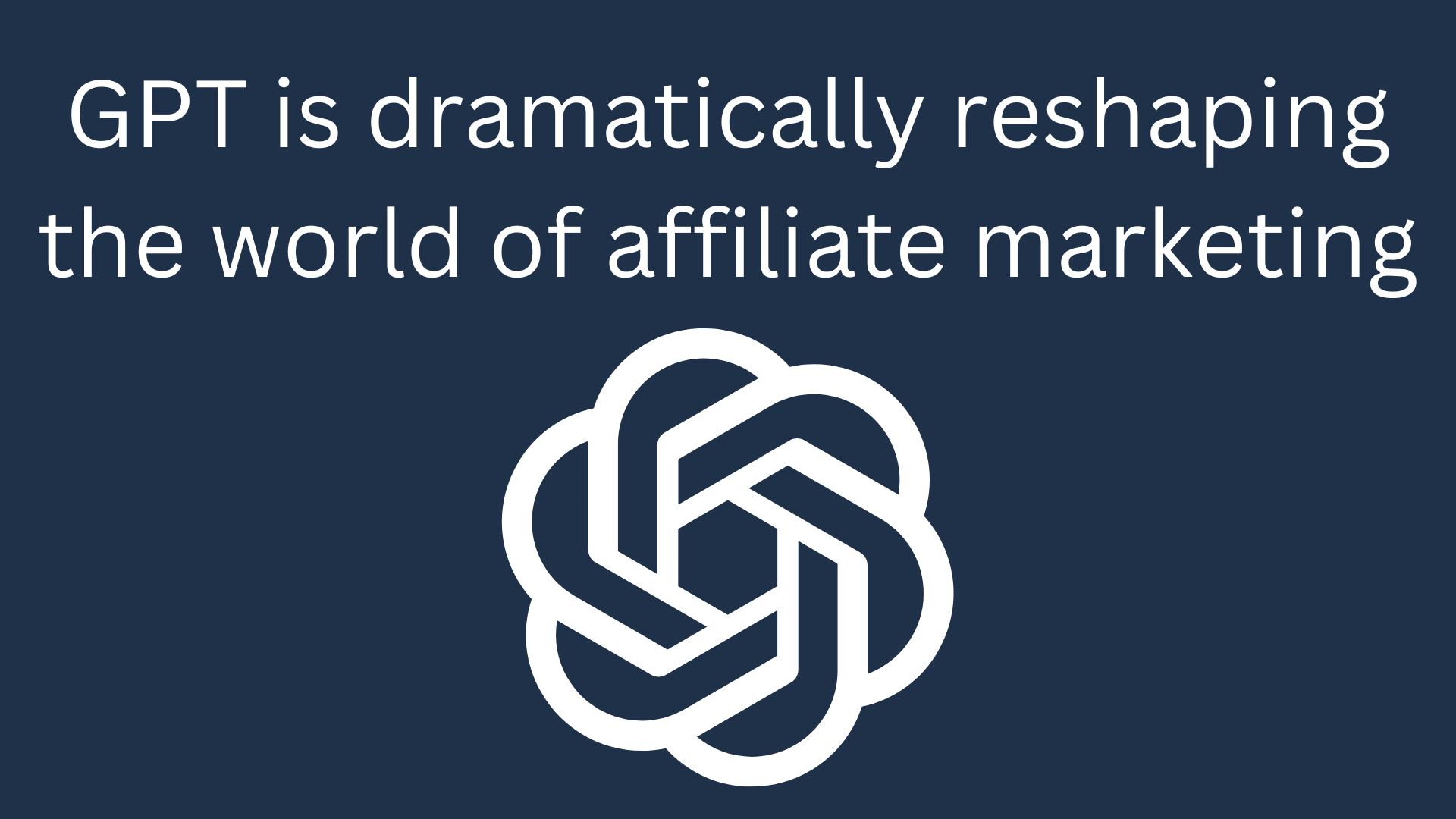
The future of affiliate marketing in the age of privacy concerns
-
Table of Contents
- Introduction
- How Affiliate Marketers Can Adapt to the Growing Privacy Concerns of Consumers
- Exploring the Impact of GDPR on Affiliate Marketing
- How to Leverage the Benefits of Affiliate Marketing While Respecting Consumer Privacy
- The Benefits of Utilizing Privacy-Focused Affiliate Networks
- How to Create an Ethical and Compliant Affiliate Marketing Program in the Age of Privacy Concerns
- Q&A
- Conclusion
“Unlock the Potential of Affiliate Marketing in the Age of Privacy: Secure, Transparent, and Profitable.”
Introduction
The future of affiliate marketing is uncertain in the age of privacy concerns. With the introduction of the General Data Protection Regulation (GDPR) and the California Consumer Privacy Act (CCPA), companies are now required to be more transparent about how they use consumer data. This has caused many companies to rethink their approach to affiliate marketing, as it relies heavily on the collection and use of consumer data. In this article, we will explore the potential implications of these new regulations on the future of affiliate marketing, and how companies can adapt to ensure compliance. We will also discuss the potential opportunities that may arise from these changes, and how companies can take advantage of them.
How Affiliate Marketers Can Adapt to the Growing Privacy Concerns of Consumers
As the digital landscape continues to evolve, so too do the privacy concerns of consumers. As an affiliate marketer, it is important to stay up-to-date on the latest privacy regulations and consumer trends in order to remain compliant and competitive. Here are some tips on how to adapt to the growing privacy concerns of consumers:
1. Be transparent about data collection. Consumers are increasingly aware of how their data is being collected and used. As an affiliate marketer, it is important to be transparent about the data you collect and how it is used. Make sure to provide clear and concise information about your data collection practices in your privacy policy.
2. Respect consumer preferences. Consumers have the right to opt-out of data collection and marketing activities. Make sure to provide an easy way for consumers to opt-out of data collection and marketing activities.
3. Use secure data storage. Data security is a major concern for consumers. Make sure to use secure data storage solutions to protect consumer data.
4. Use secure payment methods. Consumers are increasingly concerned about the security of their payment information. Make sure to use secure payment methods such as SSL encryption and tokenization to protect consumer payment information.
5. Monitor third-party vendors. Third-party vendors can pose a risk to consumer privacy. Make sure to monitor third-party vendors to ensure they are compliant with the latest privacy regulations.
By following these tips, affiliate marketers can ensure they are compliant with the latest privacy regulations and remain competitive in the digital landscape.
Exploring the Impact of GDPR on Affiliate Marketing
The General Data Protection Regulation (GDPR) is a set of regulations that was introduced in the European Union (EU) in 2018. It is designed to protect the personal data of EU citizens and to give them more control over how their data is used. As such, it has had a significant impact on the affiliate marketing industry.
Affiliate marketing is a form of online marketing in which a business pays an affiliate for referring customers to their website. This is usually done through the use of tracking links, which allow the affiliate to track the customer’s activity and receive a commission for any sales that result.
Under the GDPR, businesses must obtain explicit consent from customers before collecting and processing their personal data. This includes the use of tracking links, which means that affiliates must now obtain consent from customers before they can be tracked. This has had a significant impact on the affiliate marketing industry, as it has made it more difficult for affiliates to track customers and receive commissions.
In addition, the GDPR requires businesses to provide customers with clear and transparent information about how their data is being used. This means that businesses must provide customers with detailed information about how their data is being used for affiliate marketing purposes. This has made it more difficult for businesses to use affiliate marketing, as they must now provide customers with detailed information about how their data is being used.
Finally, the GDPR requires businesses to delete customer data upon request. This means that businesses must delete any customer data that is used for affiliate marketing purposes upon request. This has made it more difficult for businesses to use affiliate marketing, as they must now delete customer data upon request.
Overall, the GDPR has had a significant impact on the affiliate marketing industry. It has made it more difficult for affiliates to track customers and receive commissions, as they must now obtain explicit consent from customers before they can be tracked. It has also made it more difficult for businesses to use affiliate marketing, as they must now provide customers with detailed information about how their data is being used and delete customer data upon request.
How to Leverage the Benefits of Affiliate Marketing While Respecting Consumer Privacy
Affiliate marketing is a powerful tool for businesses to reach new customers and increase their sales. However, it is important to ensure that consumer privacy is respected when leveraging the benefits of affiliate marketing. Here are some tips to help you do just that.
1. Ensure that your affiliate partners are compliant with data privacy regulations. Before you enter into an affiliate relationship, make sure that your partner is compliant with all applicable data privacy regulations, such as the General Data Protection Regulation (GDPR) and the California Consumer Privacy Act (CCPA).
2. Obtain consent from customers before collecting their data. Make sure that customers are aware of how their data will be used and obtain their consent before collecting it. This includes obtaining consent for the use of cookies and other tracking technologies.
3. Provide customers with clear information about how their data will be used. Make sure that customers are aware of how their data will be used and for what purpose. This includes providing information about how their data will be shared with affiliates and how it will be used to target them with relevant ads.
4. Give customers the option to opt-out of data collection. Make sure that customers have the option to opt-out of data collection and that they are aware of this option. This includes providing an easy way for customers to opt-out of data collection and tracking.
5. Respect customer requests to delete their data. Make sure that you respect customer requests to delete their data and that you delete it in a timely manner.
By following these tips, you can ensure that you are leveraging the benefits of affiliate marketing while respecting consumer privacy.
The Benefits of Utilizing Privacy-Focused Affiliate Networks
The use of privacy-focused affiliate networks is becoming increasingly popular among online businesses. These networks provide a secure and private way to track and manage affiliate marketing campaigns. By utilizing these networks, businesses can ensure that their customers’ data is kept safe and secure, while still being able to track and measure the success of their campaigns.
One of the main benefits of using a privacy-focused affiliate network is that it allows businesses to protect their customers’ data. These networks use advanced encryption technology to ensure that customer data is kept secure and private. This means that businesses can be sure that their customers’ information is not being shared with third parties or used for any other purpose. Additionally, these networks also provide businesses with the ability to track and measure the success of their campaigns. This allows businesses to make informed decisions about their marketing strategies and ensure that they are getting the most out of their campaigns.
Another benefit of using a privacy-focused affiliate network is that it allows businesses to remain compliant with data privacy regulations. These networks are designed to comply with the latest data privacy regulations, such as the General Data Protection Regulation (GDPR). This means that businesses can be sure that their customers’ data is being handled in a secure and compliant manner.
Finally, using a privacy-focused affiliate network can help businesses save time and money. These networks are designed to be easy to use and require minimal setup. This means that businesses can quickly and easily set up their campaigns and start tracking and measuring their success. Additionally, these networks often offer competitive pricing, which can help businesses save money on their campaigns.
In conclusion, utilizing a privacy-focused affiliate network can provide businesses with a secure and private way to track and manage their campaigns. These networks offer businesses the ability to protect their customers’ data, remain compliant with data privacy regulations, and save time and money. For these reasons, businesses should consider utilizing a privacy-focused affiliate network to ensure the success of their campaigns.
How to Create an Ethical and Compliant Affiliate Marketing Program in the Age of Privacy Concerns
In the age of privacy concerns, creating an ethical and compliant affiliate marketing program is essential for businesses. Affiliate marketing is a powerful tool for businesses to reach new customers and increase sales, but it must be done in a way that respects the privacy of customers and complies with applicable laws. Here are some tips for creating an ethical and compliant affiliate marketing program.
1. Establish Clear Policies and Procedures: Establish clear policies and procedures for your affiliate marketing program that are in line with applicable laws and regulations. Make sure that your policies and procedures are clearly communicated to all affiliates and that they are regularly updated to reflect any changes in the law.
2. Monitor Affiliates: Monitor your affiliates to ensure that they are following your policies and procedures. This includes regularly reviewing their websites and other marketing materials to ensure that they are not engaging in any deceptive or misleading practices.
3. Ensure Compliance with Data Protection Laws: Ensure that your affiliate marketing program complies with applicable data protection laws. This includes obtaining consent from customers before collecting and using their personal data, as well as ensuring that any data collected is securely stored and not shared with any third parties.
4. Provide Training: Provide training to your affiliates on the importance of privacy and compliance. This will help ensure that they understand the importance of protecting customer data and following applicable laws.
5. Monitor Performance: Monitor the performance of your affiliates to ensure that they are not engaging in any unethical or illegal practices. This includes regularly reviewing their websites and other marketing materials to ensure that they are not engaging in any deceptive or misleading practices.
By following these tips, businesses can create an ethical and compliant affiliate marketing program that respects the privacy of customers and complies with applicable laws. Doing so will help businesses protect their reputation and ensure that their affiliate marketing program is successful.
Q&A
1. How will privacy concerns affect the future of affiliate marketing?
Privacy concerns will have a major impact on the future of affiliate marketing. Companies will need to ensure that they are compliant with data privacy regulations, such as the General Data Protection Regulation (GDPR) and the California Consumer Privacy Act (CCPA). This means that companies will need to be transparent about how they are collecting, using, and sharing customer data. They will also need to provide customers with the ability to opt-out of data collection and use.
2. What strategies can companies use to ensure compliance with privacy regulations?
Companies can use a variety of strategies to ensure compliance with privacy regulations. These include implementing data privacy policies, providing customers with clear and concise information about how their data is being used, and giving customers the ability to opt-out of data collection and use. Companies should also ensure that they are using secure data storage and transmission methods.
3. How can companies use affiliate marketing to their advantage in the age of privacy concerns?
Companies can use affiliate marketing to their advantage in the age of privacy concerns by ensuring that they are compliant with data privacy regulations. This means that companies should be transparent about how they are collecting, using, and sharing customer data. They should also provide customers with the ability to opt-out of data collection and use. Additionally, companies should ensure that they are using secure data storage and transmission methods.
4. What are the benefits of using affiliate marketing in the age of privacy concerns?
The benefits of using affiliate marketing in the age of privacy concerns include increased customer trust, improved customer loyalty, and increased sales. By being transparent about how they are collecting, using, and sharing customer data, companies can build trust with their customers. This can lead to improved customer loyalty and increased sales.
5. What challenges do companies face when using affiliate marketing in the age of privacy concerns?
The challenges that companies face when using affiliate marketing in the age of privacy concerns include ensuring compliance with data privacy regulations, such as the General Data Protection Regulation (GDPR) and the California Consumer Privacy Act (CCPA). Companies must also ensure that they are providing customers with clear and concise information about how their data is being used and giving customers the ability to opt-out of data collection and use. Additionally, companies must ensure that they are using secure data storage and transmission methods.
Conclusion
The future of affiliate marketing in the age of privacy concerns is uncertain. As more and more consumers become aware of their data privacy rights, they may be less likely to share their personal information with third-party companies. This could lead to a decrease in the effectiveness of affiliate marketing. However, with the right strategies and tools, companies can still use affiliate marketing to reach their target audiences and drive sales. Companies should focus on building trust with their customers and providing them with a secure and transparent experience. With the right approach, affiliate marketing can still be a successful and profitable marketing strategy.


